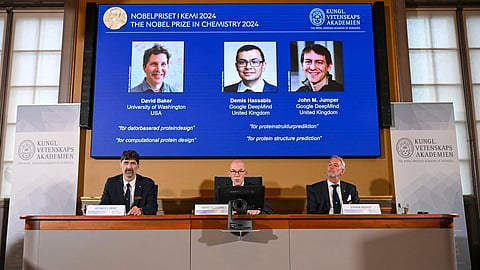
- NEWS
- the EDIT
- COMMENTARY
- BUSINESS
- LIFE
- SHOW
- ACTION
- GLOBAL GOALS
- SNAPS
- DYARYO TIRADA
- MORE

The business sector has highlighted artificial intelligence (AI) as the next industrial leap after the digital revolution and the state-owned University of the Philippines (up) has taken notice and is putting it at the forefront of its academic horizon.
“The 2024 Nobel Prize in Physics showed that investing in AI is not just an option but an imperative for our nation’s future,” UP president Angelo Jimenez noted.
“As one of the world’s most prestigious science awards recognized AI’s global significance, UP has been taking concrete steps to harness its power for national progress.’’
Dr. Gisela P. Concepcion, UP’s Special Adviser to the President on Research and Innovation, drew parallels between the Nobel-winning work and UP’s initiative: “The breakthroughs recognized by the Nobel Prizes — from fundamental machine learning to protein structure prediction — demonstrate AI’s potential to accelerate discovery and innovation across all fields.”
Concepcion added that “just as Hopfield and Hinton laid the foundations for modern AI, UP aims to lay the groundwork for AI-driven national development. This conference is our step towards positioning the Philippines at the forefront of AI innovation in Southeast Asia.”
UP seeks to gather the country’s experts for a conference underscoring AI’s profound impact on society, modern science, and the research community.
The university-organized “AI Horizons PH ‘24: Conference on AI-Powered Research and Innovation” on October 24 and 25 at the UP-BGC campus in Taguig City will also highlight AI-driven solutions that can potentially transform the Philippines’ unique challenges in food security, sustainable agriculture, quality education, good governance, materials and energy, and health and wellness.
The Royal Swedish Academy of Sciences Nobel Committee honored physicist John Hopfield and computer scientist Geoffrey Hinton recently for their “foundational discoveries and inventions that enable machine learning with artificial neural networks.”
It underlined how Hopfield’s work on associative memory and Hinton’s contributions to deep learning had laid the groundwork for today’s AI revolution, from language translation to image recognition and beyond.
‘As one of the world’s most prestigious science awards recognized AI’s global significance, UP has been taking concrete steps to harness its power for national progress.’
Conference chairperson Dr. Prospero Naval, Jr. of the UP Diliman Department of Computer Science said the organizers “aim to ignite AI transformation in our country, championing a vision where AI is integrated into everything and made accessible to everyone.”
“AI’s transformative potential hinges on our commitment to digital infrastructure and data-driven strategies across all sectors,” emphasized Peter Sy, UP assistant vice president for Digital Transformation.
